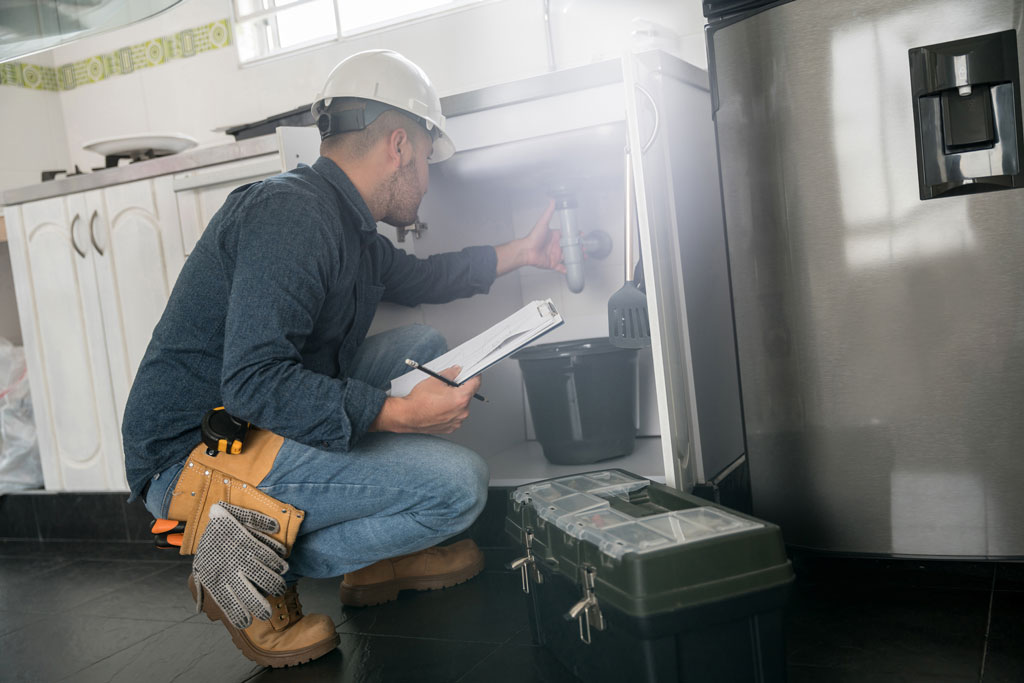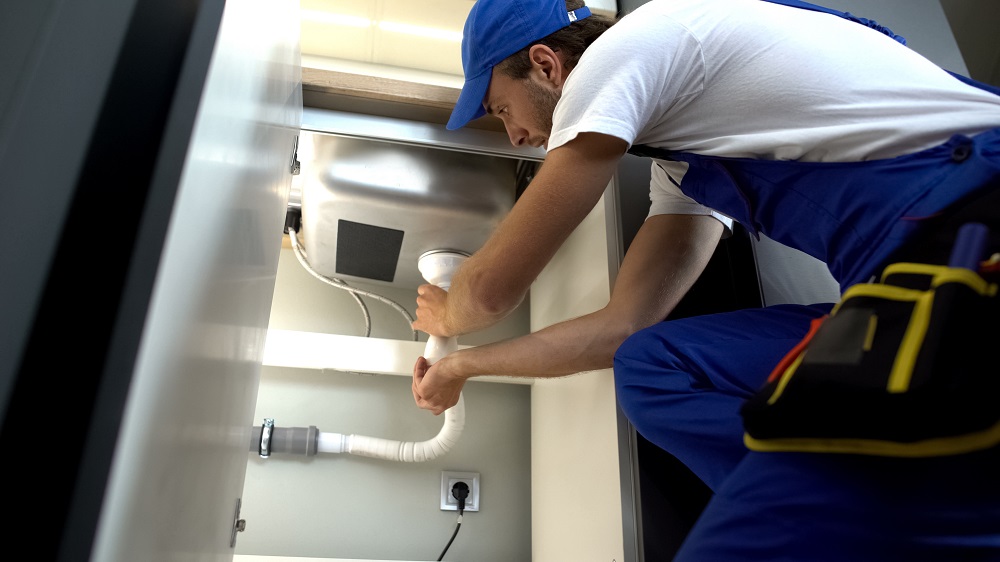Effective Solutions for Pipe Issues: Key Steps to Take Until Help Arrives
Effective Solutions for Pipe Issues: Key Steps to Take Until Help Arrives
Blog Article
Each person will have their own unique conception involving Expert Tips for Managing a Plumbing Emergency Until Help Arrives.

Pipes emergencies can strike any time, causing anxiety and possible damages to your home. Whether it's a burst pipe, a clogged up drainpipe, or a leaky tap, understanding how to take care of the situation until a professional plumber gets here can conserve you from additional problems. This short article provides essential emergency situation plumbing tips to aid you mitigate damages and gain back control during a plumbing crisis.
Switch off the Water System
The first step in any kind of plumbing emergency situation is to shut down the water. For local concerns, such as a dripping faucet or bathroom, turn off the valve near the component. When it comes to a significant leakage or burst pipe, locate your home's major water shut-off shutoff and transform it off right away. Understanding the location of these valves ahead of time can conserve useful time during an emergency situation.
Address Tiny Leaks with Short-term Solutions
Little leaks can quickly become substantial troubles if left untreated. Utilize these short-term solutions up until specialist aid gets here:
While these repairs aren't long-term, they can help minimize water loss and damages.
Unclog Drains Pipes Safely
A blocked drain can be an irritating and messy concern. Below's exactly how to tackle it:
If these approaches do not work, avoid making use of too much force, as it may get worse the clog.
Handle Overflowing Toilets
An overflowing commode can trigger instant chaos. Below's what you must do:
Turn off Your Hot Water Heater
In particular emergency situations, such as a burst pipeline, it's wise to turn off your water heater. This stops overheating or damages to the unit when water quits flowing. Shut off the power supply to the hot water heater (electric or gas) and allow it cool down to stay clear of potential dangers.
Temporarily Quit a Ruptured Pipe
A ruptured pipe can cause substantial water damage in mins. To mitigate the problem:
Call a professional plumbing technician immediately to attend to the trouble completely.
Take Care Of Frozen Pipes Very Carefully
In chillier environments, icy pipes are a typical emergency situation. If you think an icy pipeline:
Avoid Further Damage
Taking quick action to lessen damages can conserve you money and time in the future. Below's just how:
. Have an Emergency Pipes Set
Prepare a basic pipes emergency situation set to deal with small problems successfully. Your set ought to include:
Having these tools available can make a significant distinction in your capability to handle emergencies.
Know When to Call a Professional.
While quick fixes can assist briefly, specific plumbing concerns call for instant expert attention. Call a plumber if:.
Promptly calling a specialist guarantees the problem is resolved properly and protects against further difficulties.
Conclusion.
Pipes emergencies can be overwhelming, yet with the best expertise and tools, you can handle the scenario efficiently up until aid shows up. By switching off the water supply, dealing with tiny leakages, and using momentary solutions, you can minimize damages and keep your home safe. Keep in mind, these pointers are temporary services; constantly consult a licensed plumbing to deal with the root cause of the issue. Prep work and fast reasoning are your ideal allies in any plumbing emergency.
8 Helpful Tips for Managing Plumbing Emergencies at Home
If your plumbing system hasn’t failed once, wait for it because almost everyone has a story to tell. Sometimes, it could be simple emergencies such as a leaking pipe, a blocked cistern, or even a big burst pipe. In situations like this, you need to have some handy tips to save you some money and from possible damages.
Take care of minor issues early.
Sometimes, you could have avoided an emergency by taking proactive measures while it was still early. Some major plumbing emergencies can be a result of an ignored minor issue. We recommend that you have items like plumbing tapes and other related items. A plumbing tape can allow you to manage minor leaks before the plumber arrives.
Cut off the water supply.
This tip is essential in almost any type of leakage problem. For problems like minor leakages in the toilet or kitchen, turn off the supply that takes water to the affected pipes. If the leakage is a major pipe, you must shut off the supply valve to the entire building. This will help you avoid flooding your home and neighbors if you share a flat.
Know your plumbing system
Folks typically move into a new apartment without understanding the water supply around the building. This can prove disastrous if a water emergency arises and the plumber is far away. The previous tip will prove useless if you don’t practice this one. More importantly, know where your water shut-off valve is located – you’ll need that knowledge to prevent potential home floods.
Have some common handy tools
There are lots of plumbing emergencies that you can handle without hiring a plumber. That’s why you must keep some tools available always. Some tools that you can use to fix simple plumbing emergencies easily include plumbing tapes, screwdrivers, thread seal tapes, plungers, pliers, tape measures, and rubber gloves.
Insulate your pipes from cold
You’ll save yourself from many plumbing expenses if you protect your water pipes from the cold. This is because of the harmful effects that cold weather can have on your pipes. During winter, your pipes can burst from being overly expected to freezing temperatures. So, make sure insulators are there to keep the pipes working correctly.
Avoid practices that will clog your toilet.
Many people indulge in practices that can damage the plumbing system of the entire building. One of these is when they use their toilet to dispose-off garbage. They flush all kinds of things, such as paper towels, bandages, hairs, female sanitary products, etc., down the toilet. This will block your toilet in the long run, incurring unnecessary expenditures. Dump such waste in the trash instead.
Check your dials regularly.
Sometimes, there could be leakages in your home without noticing them in time. So, constantly monitor your water meter dial. If the dial is reading when there is nobody using water, this is an indicator that there is leaking. Check for leaks immediately. Call a plumber as soon as possible if you can’t find any.
https://www.constructionplacements.com/8-helpful-tips-for-managing-plumbing-emergencies-at-home/

We hope you enjoyed our piece on . Thanks for taking time to read our short article. So long as you liked our page please consider to share it. Many thanks for being here. Don't hesitate to check our site back soon.
Explore Now Report this page